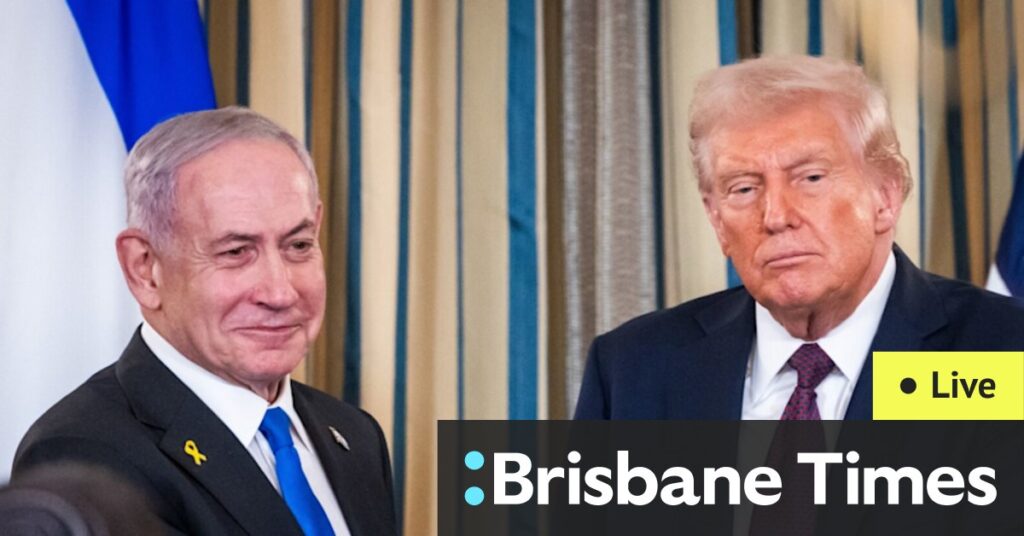
Australia’s communications landscape is under intense scrutiny as the government accelerates efforts to establish a watchdog for the Triple Zero emergency network. This move comes amid criticism of Communications Minister Anika Wells, who has faced backlash for describing herself as a “new minister” months into her role. Meanwhile, Prime Minister Anthony Albanese has expressed support for a U.S.-led peace plan to end the ongoing conflict in Gaza.
Minister Under Fire for Triple Zero Network Failures
Communications Minister Anika Wells has come under fire from the opposition for her handling of the Triple Zero network, following recent failures that have shaken public confidence. During a press conference in Sydney, Wells referred to herself as “new to the job,” a statement that drew sharp criticism from Opposition Leader Sussan Ley. Ley accused Wells of avoiding responsibility and treating critical service failures as minor issues.
Wells, who assumed her role in May after a government reshuffle, was previously the minister for sport and aged care. Opposition communications spokesperson Melissa McIntosh criticized Wells for prioritizing a trip to New York over addressing the Triple Zero crisis, stating, “Australians feel let down and are lacking confidence in the Triple Zero network – their lifeline in a time of need.”
Fast-Tracking Legislation for a Triple Zero Guardian
The government is now fast-tracking legislation to establish a “Triple Zero guardian,” a role recommended over a year ago. This legislative push follows a significant Optus network outage on September 18, which further highlighted vulnerabilities in the emergency call system. Wells emphasized the complexity of the task, stating, “There is no blockage, it is complex work and if it was easy to complete it would be done already.”
As part of the government’s response, Wells has called for external accountability measures to ensure public confidence in the system. “I have also asked Singtel to appoint external accountability to make sure that Australians can take advice not just from Optus themselves, but from an independent and external party,” she noted.
Albanese Supports Trump’s Gaza Peace Initiative
In international news, Prime Minister Anthony Albanese has welcomed a peace plan proposed by former U.S. President Donald Trump to end the conflict in Gaza. The plan, which has been agreed to by Israeli Prime Minister Benjamin Netanyahu, outlines a framework for peace and governance in the war-torn region.
Australia welcomes President Trump’s plan to bring peace to Gaza after almost two years of conflict and a devastating loss of civilian life. Australia has consistently been part of international calls for a ceasefire, return of the hostages, and flow of aid to Gaza.
The plan emphasizes Palestinian self-determination and statehood, with the Palestinian Authority regaining control of Gaza. It also rejects annexation and forced displacement, aiming to include a broad range of international stakeholders in the peace process.
Challenges and Prospects for Peace
While the plan has received support from various quarters, including the Palestinian Authority, its success hinges on Hamas’ acceptance and the release of hostages. The proposal also calls for a temporary governing board, potentially headed by Trump and former British Prime Minister Tony Blair, to oversee postwar governance.
Albanese has urged all parties to engage seriously with the plan, highlighting Australia’s commitment to a sustainable two-state solution. “Together with our partners, Australia will continue to support efforts to end the war and work towards a just and sustainable two-state solution,” he stated.
Broader Implications and Future Steps
The developments in both domestic and international arenas reflect significant challenges and opportunities for Australia. Domestically, the focus remains on restoring confidence in critical infrastructure, with the government poised to introduce robust measures to safeguard the Triple Zero network.
Internationally, Australia’s support for the Gaza peace plan underscores its role in global diplomatic efforts. The success of these initiatives will depend on effective collaboration and commitment from all involved parties.
As the government navigates these complex issues, the coming weeks will be crucial in shaping the outcomes of both the Triple Zero network reforms and the broader peace efforts in the Middle East.







